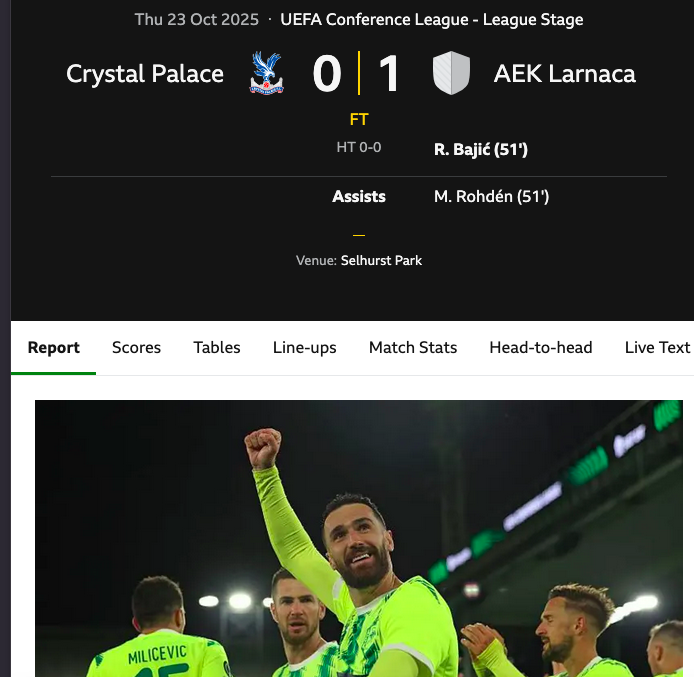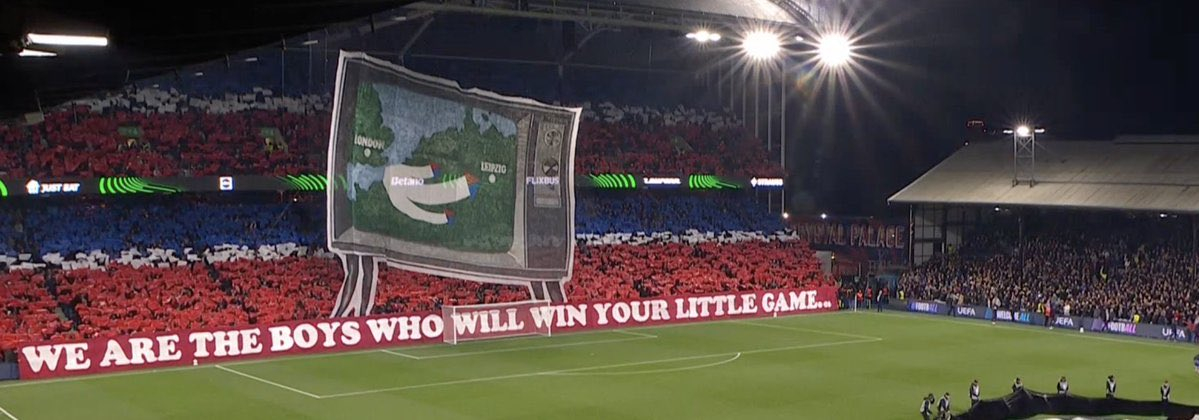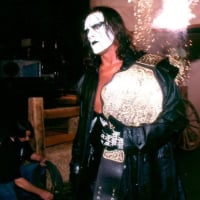Attention: Please take a moment to consider our terms and conditions before posting.
Palace and Europe ?
Comments
-
I can’t wait to hear there argument - “Yes, we knew about the regulations, but we’re pretty crap and did nothing because we didn’t expect to win anything. Then, by accident, we did win something, but we were in contravention of the regulations we’d knowingly ignored. But it not our fault, we didn’t know we were going to win, and now we’re being punished unfairly for not doing our job, having no confidence in the team, and generally making a mess of things”.
9 -
A bad day for football, well it couldn’t say a bad day at the office, as that’s what got them in this mess.charltonbob said:Palace are expected to take their case to the Court of Arbitration for Sport (Cas).
"At the end of the day it's an injustice, just by a couple of admin errors. We qualified for it," Nick Philpot from the Red and Blue Review podcast said at the march.
"We won the cup - it should be we go into it without any question about it.
"You're penalising the entire club and the fanbase. Why would you do that?"
Last week, Crystal Palace chairman Steve Parish called the decision "a bad day for football" and "a terrible injustice".
"We've been locked out of a European competition on the most ridiculous technicality," he said. "Supporters of all clubs should be devastated for us."





Read your emails.1 -
Why should any other club care about this? There's bigger problems in English football than Steve Parish not checking his emails.
The media should be all over what's going on at Morecambe not giving media coverage to Steve Parish bleating away about how unfair what European competition they're in.5 -
Apart from the general hilarity of the situation, I've not had a real view as to whether Palace's position has any real merit or not, not least because I'm not aware of UEFA's rules.
The BBC Football website does, however, state that:
"In the governing body's rulebook, a club is required to prove they are not "simultaneously involved in any capacity whatsoever in the management, administration, and/or sporting performance of more than one club participating in a Uefa club competition" (my emphasis).
Given that Textor's Eagle Football owned (and continues to own) a 43% stake in Palace (and a 77% stake in Lyon), how can they credibly argue that they are not in breach of the rule set out above, the purpose of which is to prevent collusion ?
It's all very well for Steve Parish to witter on, saying that "we know, unequivocally, that John [Textor] didn't have decisive influence over the club", but"decisiveness" is not the test. There are also sound practical and policy reasons for drafting the ambit of the rules broadly, given that it is very difficult for the authorities to know what is really going on behind the scenes at football clubs.
The Court of Arbitration for Sport is unpredictable (Man City won their appeal a few years back) but, given Textor's 43% ownership, I find it difficult to see how, they will reverse UEFA's decision and find in favour of Palace.
9 -
I just don't understand why you'd ever own 43% of a business but apparently in effect be a silent partner with no real say in the day to day running of the club. The whole thing sounds like complete and utter nonsense to try and cover for their incompetence.5
-
Obviously, as a Charlton fan, we're very much enjoying all this crap with Palace and UEFA—but the way they are behaving really reminds me of this:
 https://youtu.be/CYucIjZlO7U?si=vrIFuur3Qe_H1G41
https://youtu.be/CYucIjZlO7U?si=vrIFuur3Qe_H1G41
0 -
FUCK EM!1
-
Part of me wants them to get into the Europa league as they won't win that. They have every chance of winning the Conference League.0
-

Guess we'll have to take every loss while we can then9 -
Always been a big AEK Larnaca fan.15
-
Sponsored links:
-
Finished 4th in the Cypriot first division last season, currently 5th this season, not exactly a powerhouse of European football1
-
sam3110 said:Finished 4th in the Cypriot first division last season, currently 5th this season, not exactly a powerhouse of European football

No fair it was boys against men1 -
Wheels coming off from top much footy for a small squad.
0 -
Shit club who fluked an FA cup because of a dubious decision.
Unlucky Palarse.1 -
I hope the pricks go as far as the semis.By then hopefully the extra fixtures have hindered any progress in the Premier League, this could be a blessing in disguise.Besides, the damage was done by winning the FA Cup, I'd lose no sleep if they won this thing.....obviously I hope they don't though!#15thMay2005youc****0
-
Might wear my Cyprus shirt tomorrow0
-
Whenever I watch Palace on the TV they win.
So I deliberately didn't watch tonight 1
1 -
For a club who have never played in Europe before, Palace showed a great deal of arrogance pre-match thinking it would be a walk in the park, AEK Larnaca have the experience, played in Europe for many seasons, 9 of their 11 were over 30, and players like Miramón, Saborit, Pons have played in La Liga for many years, and Rohdén in Serie A.3
-
Plenty of Palace fans on the train home last night (we were out around London Bridge)....strange bunch.0
-
Sponsored links:
-
Twitter showing them no mercy: “you lost to an airport” ( Forest fan - apparently Palace twats said Forest were not ready for European football) . Another poster shows their TIFO with the comment “then lose to a bunch of Cypriot goatherders”1
-
I went fishing as well and caught a few
https://x.com/BigBadBraz/status/1981483811582971928?t=l75Q9ND9MEDfHlF-uZG5bw&s=195 -
Apparently Crystal 'we are going to win your little game (the Europa Conference League)' Palace now face the play offs.After the 2-2 draw they will have to play additional matches on 19 February and 26 February for the right to play in the knockout stage.
0 -

The guy did more for Charlton, whilst no being at Charlton!6















